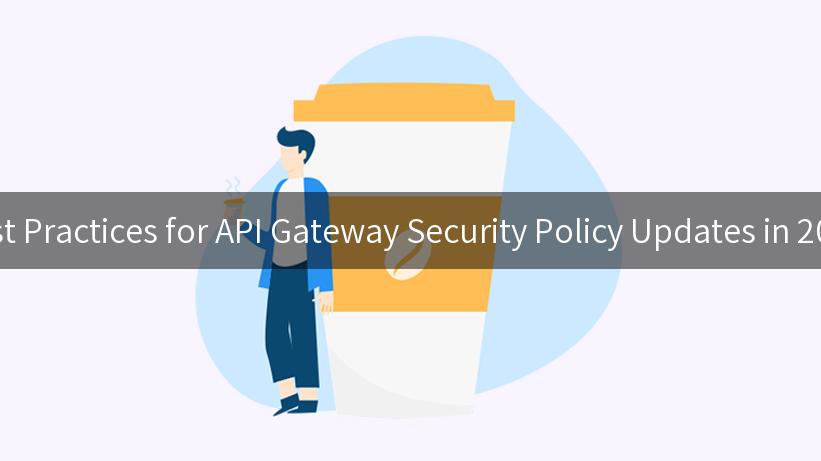
As organizations increasingly adopt APIs to power their applications, ensuring the security of these APIs has become paramount. The year 2023 presents unique challenges and opportunities, especially in the realm of AI-driven solutions. This article explores best practices for updating API gateway security policies, focusing on key elements such as using enterprise-focused AI and the Tyk API Gateway.
Importance of API Gateway Security
API gateways act as the control point for API traffic, providing a centralized interface for managing, securing, and monitoring API interactions. Implementing stringent security policies helps protect sensitive data from exposure to potential threats, ensuring compliance with industry standards and regulations. Here’s why updating security policies is essential:
- Evolving Threat Landscape: Cyber threats evolve constantly, making it imperative for organizations to stay ahead of potential attacks.
- Regulatory Compliance: Organizations must adhere to compliance standards like GDPR, HIPAA, or PCI-DSS, which often involve stringent security measures for APIs.
- Increased API Use: As the integration of APIs expands, the attack surface increases, necessitating robust security postures.
Understanding API Gateway Security Policy Updates
API gateway security policy updates encompass the processes and actions taken to reinforce the security framework surrounding APIs. This includes enhancing the security measures already in place as well as implementing new protocols to combat emerging threats. Here are some critical components:
- Authentication & Authorization: Ensuring that only authenticated users can access services using technologies such as OAuth2 or API keys.
- Rate Limiting: Applying restrictions on the number of API calls a user can make within a specified timeframe to prevent abuse.
- Input Validation: Validating all incoming data to guard against attacks such as SQL injection and cross-site scripting (XSS).
Best Practices for Security Policy Updates in 2023
1. Leverage AI for Threat Detection
With the rise of AI technologies, organizations can utilize machine learning models to identify unusual patterns and detect potential threats in real-time. Enterprise security that effectively uses AI can help you automatically flag and respond to suspicious activities. Implementing such a system mitigates the risk of human error and enhances the overall security posture.
2. Use Tyk as Your API Gateway
Tyk, an API gateway that offers extensive security features, is an excellent choice for managing API traffic. With Tyk, you gain:
- Flexible Authentication Options: Employ various authentication methods (API Key, OAuth, JWT) that work best for different services.
- Extensive Rate Limiting: Control how often each API endpoint can be accessed, preventing overloads and abuse.
- Customizable Security Policies: Tailor security features according to the business requirements, ensuring a personalized approach.
3. Regularly Update and Patch
Ensuring that the API gateway and related components are regularly updated is critical. This includes installing patches and security updates as soon as they become available. Neglecting updates can expose the system to known vulnerabilities. Here’s a simple checklist for regular updates:
| Component |
Frequency |
Responsible Role |
| API Gateway Software |
Monthly |
DevOps Team |
| Security Plugins |
Quarterly |
Security Team |
| Documentation and Policies |
Bi-Annually |
Compliance Officer |
4. Implement Additional Header Parameters
Adding Additional Header Parameters can create extra layers of security by including metadata about the request and the client. This could involve:
- Device Information: Identifying the device from which requests originate can help track and monitor potential threats.
- Source IP Address: Monitoring source IP addresses can help identify if requests originate from expected or legitimate locations.
Below is a sample configuration for Tyk API gateway to implement additional headers:
{
"name": "My API",
"api_id": "1",
"version": "1.0",
"use_keyless": false,
"proxy": {
"listen_path": "/myapi/",
"target_url": "http://myapi.com",
"enable_batch": false
},
"additional_headers": {
"X-Client-Device": "{{device_id}}",
"X-Source-IP": "{{source_ip}}"
}
}
5. Conduct Regular Security Audits
Performing regular security audits can help identify vulnerabilities before they become exploits. Use both internal and third-party resources for audits and penetration testing. Document your findings and rectify any discrepancies noted.
6. Educate Your Team
Technical teams need to be continually educated regarding API security policies and best practices. This includes:
- Workshops on security updates and tools like Tyk.
- Training on recognizing phishing attacks and social engineering tactics, as human error often constitutes a weak link in security.
Conclusion
As we progress through 2023, updating API gateway security policies remains a top priority for enterprises that wish to protect their data and systems effectively. By leveraging enterprise AI solutions, utilizing robust tools like Tyk, and adhering to best practices such as additional header parameters and regular security audits, organizations can significantly increase their API security posture.
Incorporating these strategies ensures that businesses remain resilient against emerging threats while fostering innovation and efficiency.
APIPark is a high-performance AI gateway that allows you to securely access the most comprehensive LLM APIs globally on the APIPark platform, including OpenAI, Anthropic, Mistral, Llama2, Google Gemini, and more.Try APIPark now! 👇👇👇
In an environment that increasingly relies on APIs, organizations must not underestimate the significance of adapting security policies to meet present challenges and safeguard their infrastructure against potential threats. The integration of intelligent systems and proactive management will prove indispensable in achieving optimal API security in the years to come.